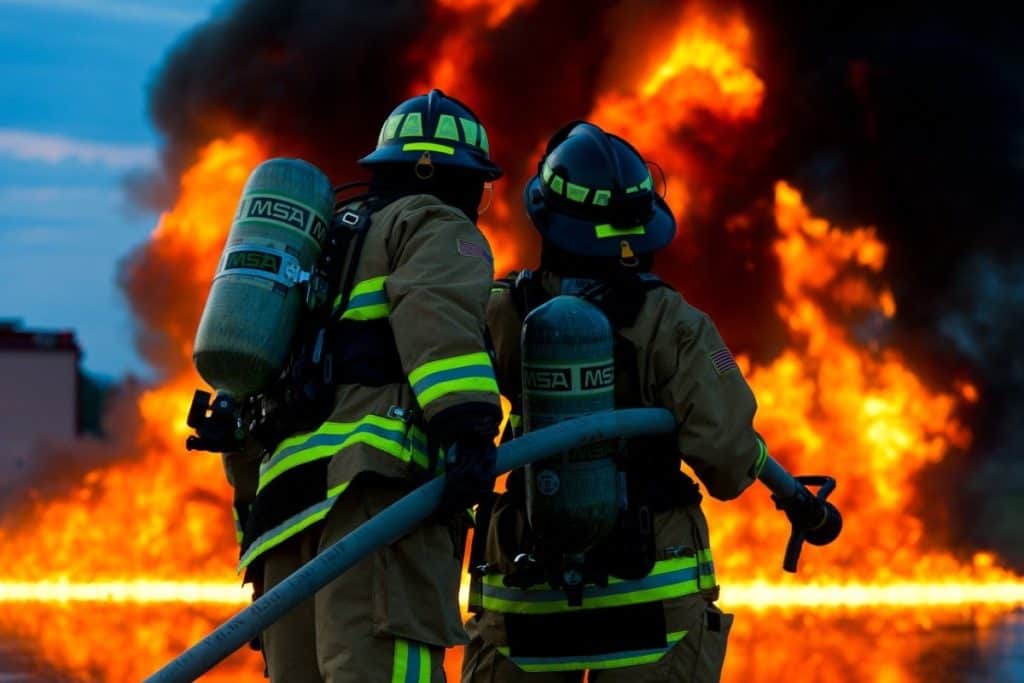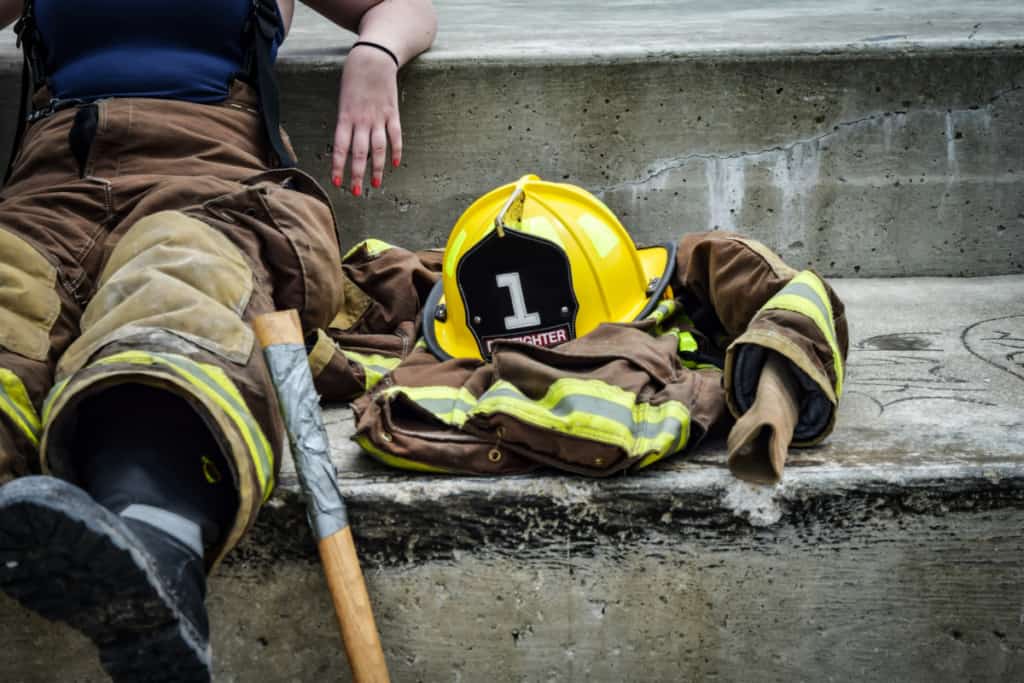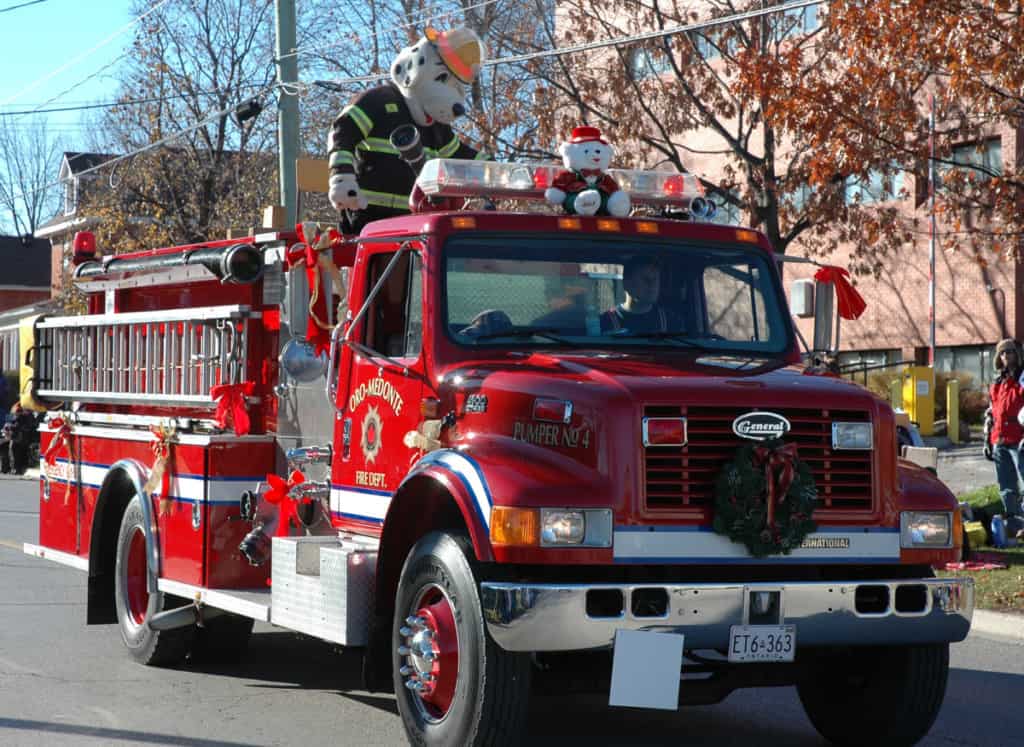If you’re considering a career as a firefighter, you’re probably aware that there will be a part of your career when you will be placed on “probation”. This is to help you develop your skills and to ensure that you fit In to the department. But how long does this period last?
A firefighter’s probationary period lasts for between 6 and 24 months (though atypically it may even be up to 36 months) depending on the fire department that they work for. This is not to be confused with the fire academy.
It is a time for cementing learning from the fire academy and applying the skills you learn to the real world. The key to a successful probationary period is not just to focus on learning but also on demonstrating your value as part of a team. It’s a tough process that isn’t always intuitive to follow.
Your # 1 priority is keeping your family safe. As a firefighter, I recommend everyone has updated smoke detectors that don’t require battery changes, like these ones from Kidde, a fire extinguisher, like this one from Amerex, and a fire escape ladder if you have bedrooms above the first floor, I recommend this one from Hausse.
Also read: Fire Academy 101: What to Expect and How to Prepare
What is Firefighter Probation and How Long Does it Last?
Every new firefighter will join a fire department and after passing the academy, you will become a probationary firefighter. Probation will last from 6-24 months (or thereabouts) and is to evaluate and test your abilities as a firefighter.
The fire academy will teach you the basic skills and knowledge that enable you to progress in the department and join the larger firefighting team. However, this program does not automatically make you a competent firefighter and thus, there is a need for a probationary period.
During this probationary period, you join the team but under supervision, and it is your supervisor who will decide whether or not you continue as a professional firefighter at the end of your probationary period.
During probation, your supervisor will be looking to see if you can put your skills into action, whether you can learn new skills as you improve and most of all, they will want to see that you can function as an effective part of a larger team.
Firefighters have to be able to rely on each other in highly dangerous situations and fire departments don’t tend to value lone gunmen even if they have huge amounts of talent – your fellow firefighters need to be able to trust you and your judgment.
You will have frequent drills and testing of both your book knowledge as well as manipulative firefighting skills. This period can be stressful as your job is on the line. At this point you are an at will employee and can be let go for any reason.
During probation, you need to prove to your fellow firefighters and chiefs that you genuinely want to be there and that you are indeed cut out for the job. You are expected to make the extra effort in everything you do.
Here is a video of a Probationary Firefighter in Vista, California talking about what probation is like:
16 Tips: How to Survive Firefighter Probation
If you want to keep your probationary period a happy time in which you can thrive, you might want to follow some simple tried and tested rules for maxing out the value of your probation.
1. Don’t Show up Empty Handed
The way to anyone’s heart is through their stomach and if you want to make a good impression, each time you work with a new crew – bring along something edible to share. The classic call is donuts but don’t let that stop you from opting for bagels and cream cheese, cookies, or any other snack that you can think of. Also, firefighters love ice cream, but you have to eat it out of a coffee mug, pro tip.
Firefighters love to eat and there’s no better way to bond than to share food with someone.
2. Respect Your Crew
This means that you need to address your chiefs, captains, and engineers by their titles and only if they request otherwise do you use their first names. This is very important as you can really make enemies if you are thought of as disrespectful. Even if you have permission to use a first name, you always use someone’s title when working with them at a scene or in public.
3. Let the In-Jokes Flow Past You
You need to understand that the team around you is fully-formed and has bonded over a period of years. While they may be very keen to joke at others’ expense and your expense, you need to let this go and do not be tempted to crack any jokes of your own.
You’re too new and the team will feel you haven’t earned the right to make these jokes, yet. Don’t worry, your time will come.
4. Show up Early
Truthfully, being early is always a good thing and we’d recommend that you keep up this habit throughout your career. Get into work at least 30 minutes before your shift starts so that you can prepare effectively for the day and catch up on any tasks that need dealing with before you start work in earnest.
In the fire service they say, “Early is on-time and on-time is late.”
5. Work Hard
Sure, this seems like stating the obvious but when you’re being assessed constantly, the easiest way to annoy your supervisor is to be constantly slacking off. If you’re not putting in everything you have when you know that you’re being evaluated, how can anyone trust you to give your all when you’re not being watched?
6. Take Notes
You will be bombarded with information, tips, stats, techniques, terminology, and methods as a new firefighter. And it’s impossible for most to remember everything right away.
Sure, it’s 2020 but the most useful thing you can keep on you is a pen, not a smartphone. When someone gives you advice or instruction – write it down. When somebody asks you to do something, write that down too. You’ll learn more and remember more when you do.
7. Learn to Love Learning
You may have hated school but this isn’t school – this is your career and the more you learn, the better you will be and more importantly, the safer you, your fellow firefighters and the general public will be too. Firefighters work is, quite literally, about life and death. You have to take it seriously.
Training and learning is a huge part of the job as a firefighter. Whether you’re reviewing infrequently used skills like high rise firefighting operations or taking in the new changes to the emergency medical protocols, there is always something to be learning or studying. And once you learn it all, there will be new things added as things change.
8. Listen to Senior Firefighters
Sure, you’re going to get some of the same old “war stories” come up every now and again. Never mind, you’re trying to build bonds with your crew and that means keeping your mouth shut (except to ask questions) and listening to what they have to say. The informal lessons that you can learn through the stories of your more experienced colleagues are more a lot more than anything that can be learned in a book.
9. Anticipate What’s Expected of You
It’s a fine line to walk but you ought to be trying to do everything that you can do. You don’t want the Captain to be sitting you down to explain what you need to do, because when that happens – you’re in serious trouble, even if you don’t realize it.
You should be “Johnny-on-the-spot” and when someone asks you to do something, you have already started doing it.
10. Don’t Leave Your Officer

Unless you are directly told to separate, you stay within reach of your officer at all times.
You don’t leave them under any other circumstances. This is for your and your crew’s safety. Crew accountability is a very important part of keeping everyone safe in the dangerous situations that firefighters are called into.
11. Keep Your Cool
You’re not expected to panic, and you know what sounds like panic? Shouting and yelling. You need to keep your cool and speak clearly and articulately, in a way that you can be heard. It will give your colleagues confidence that you know what you are doing and that they can rely on you when things get tense.
The public calls for firefighters when they are panicked and in distress. They call for us, as firefighters, to bring order and confidence to a stressful situation. Some of this will come with time and experience, but you need to show you can keep your composure in chaotic environments.
12. Always Eat with Your Crew
You need people to know that you’re a part of the team and that means being present when everyone is eating. Think of firefighting as something akin to a family. Families eat together because it allows them to thrash out important issues and to catch up with each other. You can’t be on the inside if you’re not around people when they’re bonding.
But remember, as the “probie”, you should be the last to fill your plate, the first to get up after eating and the one washing the dishes. Strive to make your crew’s job/shift easier in any way that you can.
13. Learn the Language
Every profession has its own specific terminology. The names of processes, procedures, equipment, etc. The earlier you learn these things, the faster you’re speaking to your peers in a language they understand and the more you seem like one of them rather than an outsider.
14. Ask Questions
This is good advice in absolutely every walk of life when you’re learning – ask questions. Don’t be afraid to reach out to get the input of more experienced firefighters on what they think could have been done better or what the most important lessons you should have learned from that experience are. People also appreciate it when you value their skills.
Questions show that you are interesting and want to learn. It shows that you are striving to improve yourself and take pride in your work.
15. Stay off Your Phone
Unless you have a vital call coming in – your phone should be out of sight and ideally, it’s not going to be ringing either. You want to spend your probationary learning your job and about your fellow firefighters, your phone plays no part in that process.
Even if your crew uses their phones during down time, you have too much studying, cleaning, etc. to do.
16. Have Fun
Your probationary period is, of course, a serious time in your fire department career. And it will be stressful, but it’s also an exciting period of learning and getting to meet new people. The more you try to have fun, the more fun it will become – you will also find that things are easier on you if you pretend to be excited about doing a job that’s not much fun because you’ll be seen as a team player.
Conclusion
How long is a firefighter probationary period? It depends on the fire department but the typical firefighter’s probationary is between 6 months and 2 years. However, there are roles and some outlying departments that require a probation for as long as 36 months.
The probationary period is a positive part of your development as a firefighter. It ensures that you can use the skills you learned as a trainee and work effectively as part of a larger team to save lives and put out fires.

